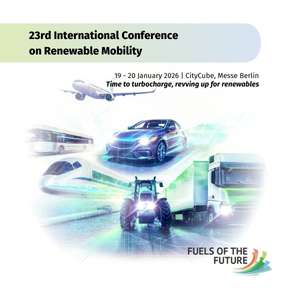Neste Oil proves NExBTL is good enough for racing
Neste Oil, a biofuels refining company, was involved in the ADAC 24-Hour Race at Nürburgring circuit in Germany over the weekend, demonstrating the efficiency of the NExBTL renewable diesel in car racing.
Neste supplied oil for two of the teams’ cars, one being the IKT Tuning Akademie team with its Audi A4, 3.0 TDI Quattro car, proving that renewable fuel can be used for racing automobiles. Within the alternative fuel category, this team came 3rd for its emission control technology.
Using the NExBTL renewable diesel, which is produced entirely from rapeseed oil, the diesel was recognised for being the only 100% biofuel used during the race this year.
Henrik Erämetsa, manager of strategic development at Neste, says it was a challenge getting the organisers to allow the teams to participate and allow the use of NExBTL because they were worried about the implications of cleaning the fuel off the asphalt if there was a spillage. However, Erämetsa says they were willing to have the teams participate after they realised the fuel would not pose any more problems that regular diesel.
As of yet, NExBTL is not yet available on the open market although it can be bought by those who own large fleets of vehicles, such as truck company owners.
‘We have now entered a new world in the demonstration of the properties of the fuel. The only hurdle left to be achieved is to get the fuel onto the wider market,’ Erämetsa says.
NExBTL not only can be used in road vehicles but has also been tested in the aviation sector. Neste Oil has committed itself to the European Aviation Biofuels Flightpath, which is working at increasing the use of aviation biofuels to two million tonnes by 2020.
The same fuel, although this time supplied by Honeywell, was used during its first international flight earlier this month and Erämetsa says one of the main advantages of NExBTL is that there is less chance of cross-contamination than with other aviation biofuels, such as those containing FAME (Fatty Acid Methyl Ester).
'Last week the ASTM (the standard specification for aviation fuels agency) standardised paraffinic aviation biofuel. That can be manufactured either by hydrogenation (HVO, like NExBTL) or by gasification and F-T synthesis as an aviation fuel and the decision to allow a 50% blend for aviation fuel. It will be possible for the whole aviation industry to use this fuel soon,’ Erämetsa adds.











